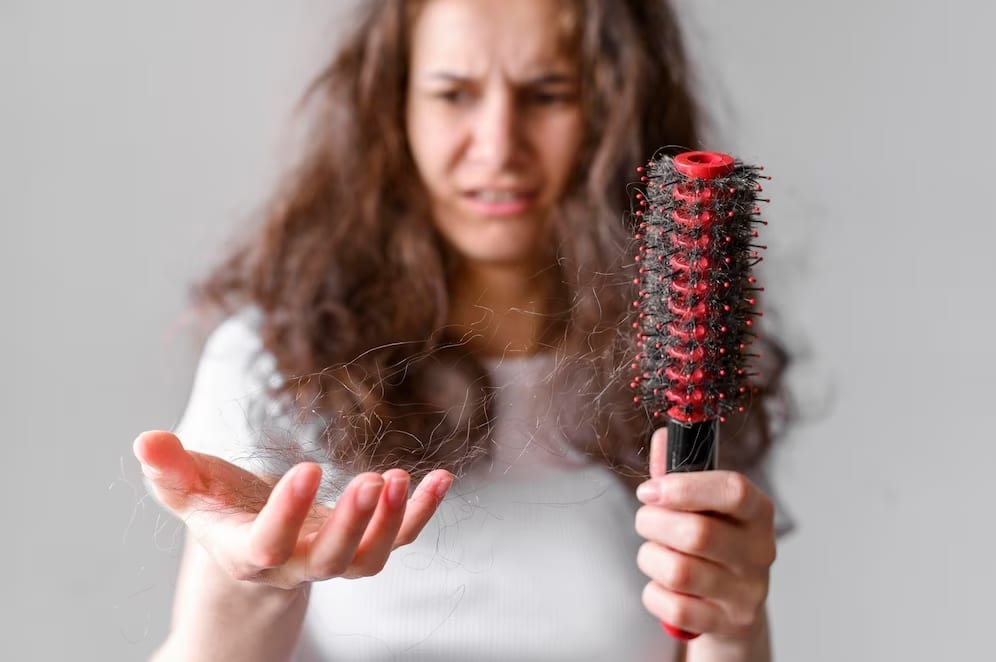Hair loss is a common concern for many individuals, affecting both men and women of various age groups. While there are numerous causes of hair loss, hormone imbalances can significantly affect this condition. Hormone replacement therapy (HRT) has gained attention as a potential treatment for hair loss, offering hope to those struggling with this issue. This article will delve into hormone replacement therapy as a hair loss treatment, exploring its effectiveness, benefits, potential risks, and frequently asked questions.
Understanding Hair Loss and Hormonal Imbalances
Hair loss, medically known as alopecia, can be attributed to various factors, including genetics, age, underlying medical conditions, and hormonal imbalances. Hormones, such as testosterone and estrogen, play a crucial role in regulating hair growth and loss. When hormone levels become imbalanced, it can disrupt the natural hair growth cycle, leading to thinning or loss of hair.
The Role of Hormone Replacement Therapy (HRT)
Hormone replacement therapy (HRT) is a treatment option that involves restoring hormone levels in the body to address imbalances and alleviate associated symptoms. While HRT is commonly used to manage symptoms of menopause in women, it has also shown potential in treating hair loss related to hormonal imbalances.
How Does Hormone Replacement Therapy Work for Hair Loss?
HRT for hair loss involves the administration of specific hormones to restore balance and promote hair growth. Estrogen therapy is often utilized for women experiencing hair loss, as it can help counteract the effects of androgens, which can contribute to hair thinning. For men, testosterone replacement therapy may be considered to address hormonal imbalances that lead to hair loss.
Effectiveness of Hormone Replacement Therapy for Hair Loss
The effectiveness of hormone replacement therapy as a hair loss treatment varies from person to person. Some individuals may experience significant improvements in hair growth and density, while others may have more modest results. It is essential to consult with a healthcare professional who specializes in hair loss and hormone therapy to determine the suitability of HRT as a treatment option.
Benefits of Hormone Replacement Therapy for Hair Loss
- Promotes Hair Regrowth: Hormone replacement therapy can stimulate dormant hair follicles, leading to new hair growth in areas of thinning or baldness.
- Restores Hormonal Balance: By addressing hormonal imbalances, HRT can help regulate the hair growth cycle and prevent further hair loss.
- Improves Hair Texture and Thickness: Hormones play a role in maintaining the quality of hair. HRT can improve hair texture and thickness, enhancing overall appearance.
Potential Risks and Side Effects of Hormone Replacement Therapy
While hormone replacement therapy can be beneficial for hair loss, it is essential to be aware of potential risks and side effects. These may include:
- Fluid Retention: HRT can cause fluid retention, leading to bloating and weight gain.
- Breast Tenderness: Estrogen therapy may cause breast tenderness or enlargement.
- Mood Swings: Hormonal fluctuations can affect mood and emotions in some individuals.
- Increased Risk of Blood Clots: Estrogen-based HRT may increase the risk of blood clot formation.
Discussing these potential risks with a healthcare professional before undergoing hormone replacement therapy is crucial.
To learn more about hormone replacement therapy and explore your options for hair loss treatment, contact Vessel Longevity today at 512-337-7722. Take the first step towards restoring your hair and confidence!


